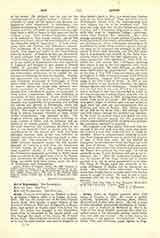

Acton, JOHN, an English canonist, after 1329 canon of Lincoln; d. 1350. His name is spelled variously, Achedune, de Athona, Aton, Eaton; Maitland and Stubbs write Ayton. He was a pupil of John Stratford (afterwards Archbishop of Canterbury), and is declared by Maitland (p. 98) to be “one of the three English canonists who after the earliest years of the thirteenth century wrote books that met with any success”. He is best known as a glossator of the legatine “Constitutions” of Cardinals Otho and Ottobone, papal legates to England in the thirteenth century, and contemporary lawyers must have found his notes both full and learned, for many manuscript copies of them are said by Maitland to be still extant at Oxford. They were first printed by Wynkyn de Worde in his edition of William Lyndewood’s “Provinciale” (1496) and partly translated in Johnson’s “Collection of Ecclesiastical Laws” (London, 1720: cf. the English translation of Otho’s “Ecclesiastical Laws”, by J. W. White, 1844). The printed copies must be received with caution, for they contain references to books that were not written until after the death of Acton. His canonical doctrine lends no support to the thesis of a medieval Anglican independence of the papal decretal legislation. “I have been unable”, says Dr. F. W. Maitland in the work quoted below (p. 8), “to find any passage in which either John of Ayton or Lyndewood denies, disputes, or debates the binding force of any decretal” (cf. ib., pp. 11-14). Of Acton the same writer says (pp. 7,8) that he was” a little too human to be strictly scientific. His gloss often becomes a growl against the bad world in which he lives, the greedy prelates, the hypocritical friars, the rapacious officials.”
THOMAS J. SHAHAN

